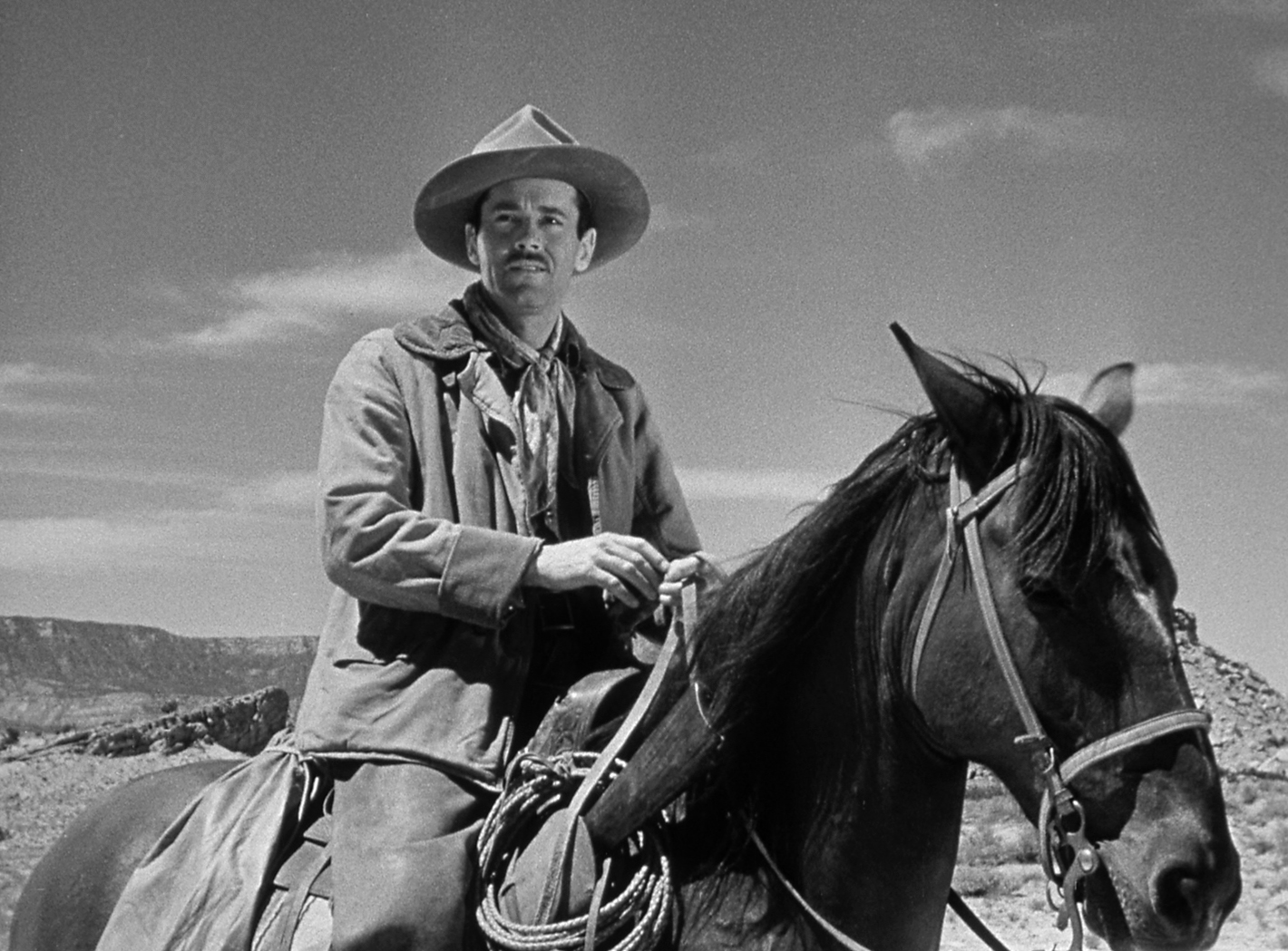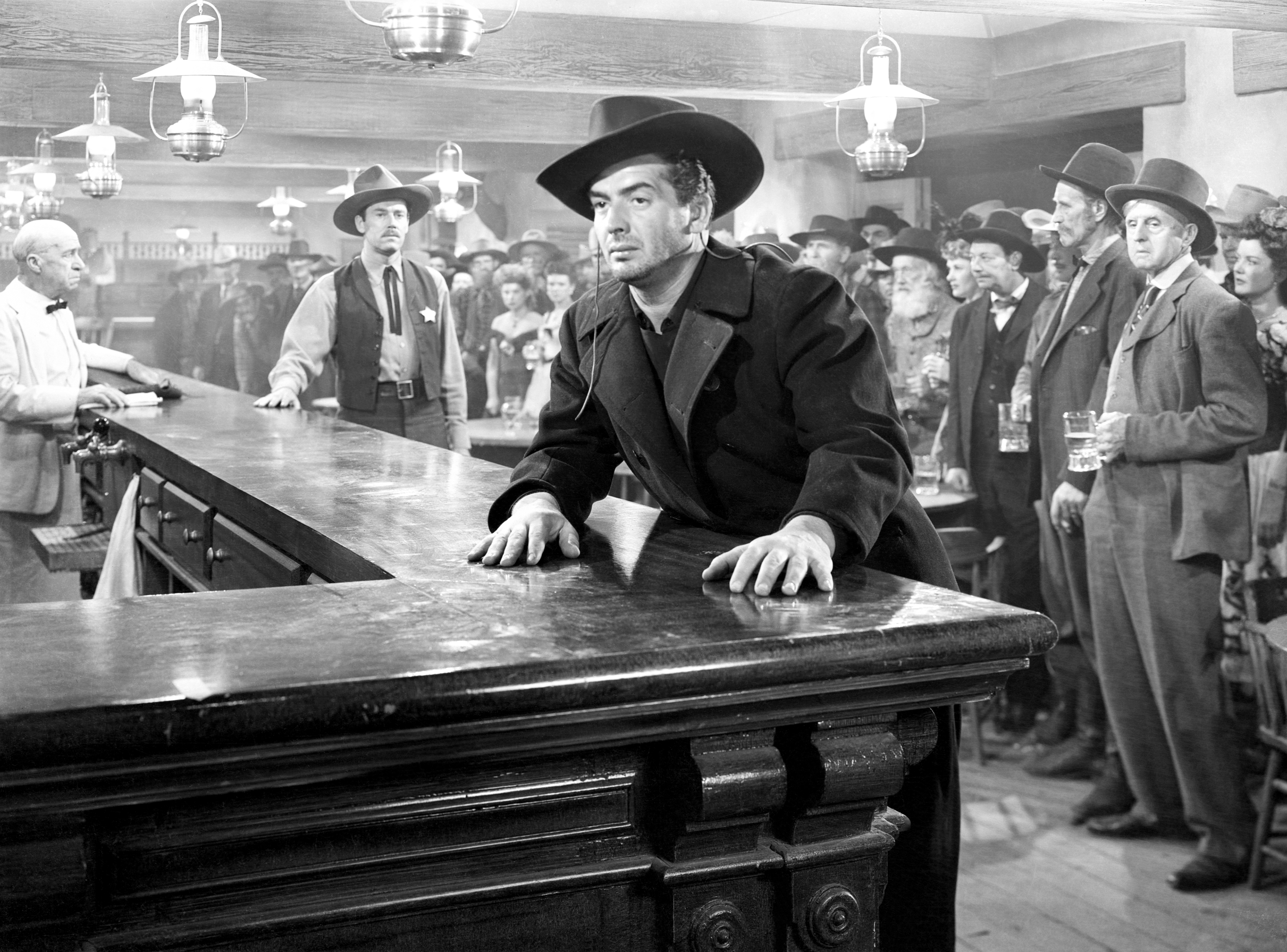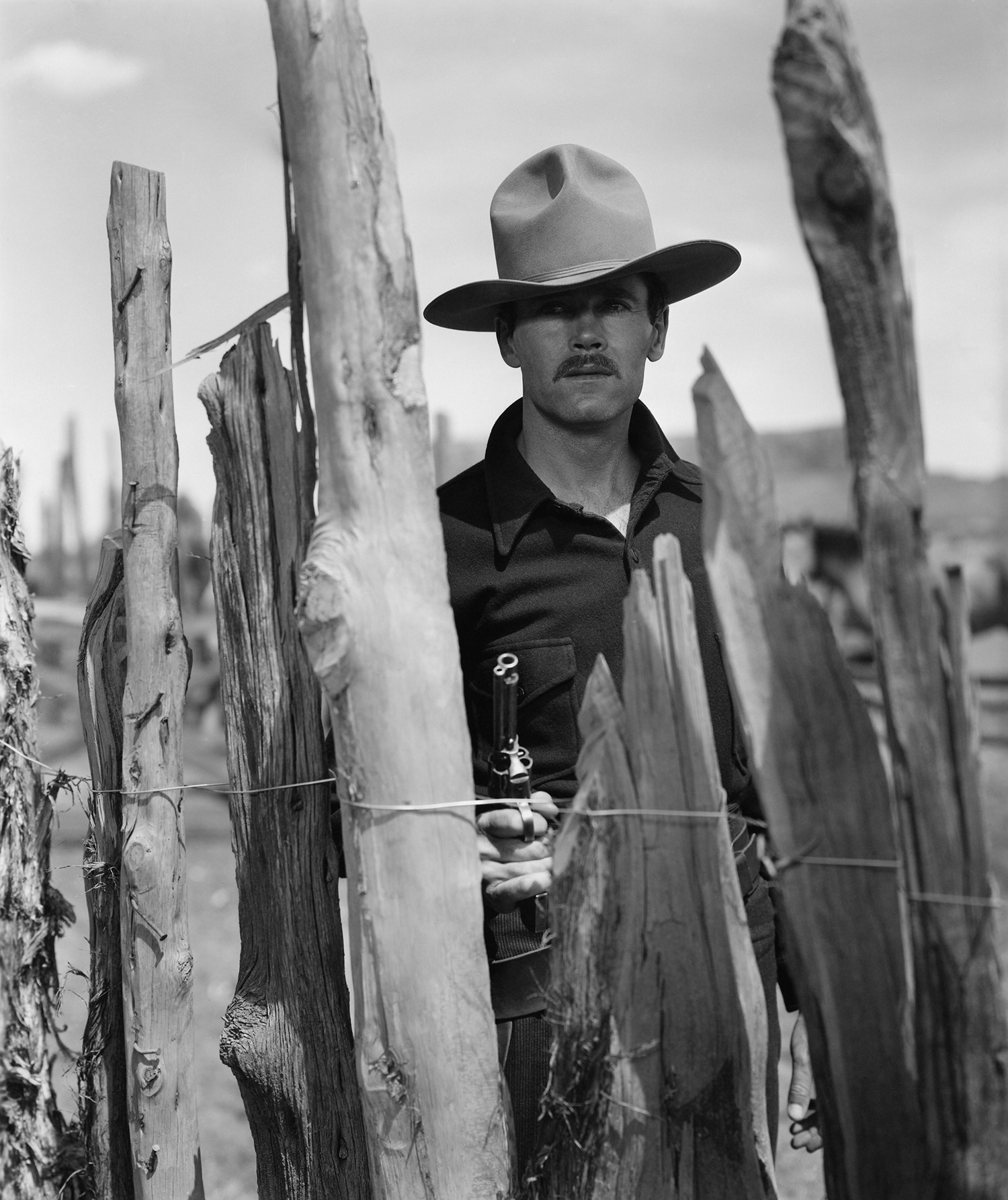Criterion's My Darling Clementine - John Ford As Mozart
 Thursday, September 17, 2015 at 04:05PM
Thursday, September 17, 2015 at 04:05PM Criterion’s My Darling Clementine – Ford As Mozart
The Searchers is John Ford as Wagner. It’s an opera of one mood: Portent; Ford vests so deeply in cartoon characters they become archetypes; he vests so deeply in cornball it becomes profound. Those Wagnerian images – how can a troop of cavalry crossing an icy stream be so inspiring? Like Wagner, Searchers’ John Ford builds myths and monuments. Nobody frames and composes for – or understands the power of –inhabited space like Ford.
 My Darling Clementine is Ford as Mozart. Clementine’s not operatic. It’s a series of self-contained movements forming a melodic symphony of moods: Elegiac, bittersweet, lethal, witty and touching. Some trip lightly, some evoke Death, some make fun of themselves, some are just plain stupid. The pace varies to underscore emphasis and emotion. The slower shit happens, the more it means.
My Darling Clementine is Ford as Mozart. Clementine’s not operatic. It’s a series of self-contained movements forming a melodic symphony of moods: Elegiac, bittersweet, lethal, witty and touching. Some trip lightly, some evoke Death, some make fun of themselves, some are just plain stupid. The pace varies to underscore emphasis and emotion. The slower shit happens, the more it means.
Ford shoots Clementine with an unusual painterly sensibility. The grave, expansive frames are his most self-consciously gorgeous. The universe splits between immense sky above and endless earth below with men trapped where they meet. The interiors feature ceilings and chiaroscuro; Ford’s expressionist Black & White evokes Film Noir like no other Western. Criterion’s extraordinary 4K print brings out the richness of the cinematography. For once in a Ford picture, visual context isn’t only backdrop or grand metaphor. Clementine is Ford’s most subtle, elegant picture and, when it’s not stupid, his least sign-posted.
The story addresses mortality; the symbiosis between civilization and violence; the scale and poetry of the Western landscape; family bonds; and how the spoken word fails to resolve disputes or express love. When Ford vests in those themes, Clementine proves hypnotizing and profound: an archetypal myth. Ford tells it as a myth should be told, quietly. Astonishingly, Ford never beats you over the head with the most profound moments. The narrative power rises from the characters and the visual presentation of theme. Ford frames Wyatt Earp against the gigantic sky and Doc Holiday tucked in the corner of a long dark bar. The meaning’s clear. Earp strides the West like a colossus; Holiday’s a dead man walking.
As for the stupid part, Ford apparently never had a conversation with a woman in his life. Or, at least never a post-orgasmic conversation – hers, not Ford’s. It’s not entirely Ford’s fault. In classical-period Westerns – Anthony Mann’s Freudian The Furies aside – women are wives, virginal wives-to-be, whores, spinsters, moms, prizes to be fought over, chicken-pluckers/plow-pullers, ornaments or encumbrances. Even so, where in Western mythology to fit poor Linda Darnell leaning against a doorway in mismatched flounces with a hairdo that launched a thousand drag queens, announcing: “I’m Chihuahua!”?
Mood needs nurturing. When Chihuahua appears as the epitome of grasping, clueless low-rent love – and she’s the sex object! – the mood goes to hell. Here Ford proves arrested development incarnate, stuck in 8th Grade, obsessed with 8th Grade obsessions: Dick-measuring, who hits hardest, who’s fastest, who’s the Alpha, who best conceals emotion, who’s most impervious to desire, who’s got the most inflexible notions of right and wrong. Granted, those obsessions do form the heart of classical-period Westerns. Only someone wholly vested without self-consciousness could spin that straw into mythology.
No women characters perfectly incarnate a '50's man's terror of women as do Ford's. Chihuahua counterpoints Clementine, who’s so virginal she’s practically paralyzed. She barely lifts her hands above her waist once in the entire picture. Earp, repressed himself, falls hard. Ford relishes their 8th Grade courtship. Clementine pretends to have no sexuality and Earp, no aggression. The more his Alpha aspects recede, the more comfortable Clem becomes. Yet in almost every exterior frame Earp and Clementine share, somewhere in the background, always between them, always thrusting to the sky, stands a big ol’ raging boner of a cactus. Few things appear in Ford frames by accident. Maybe all that role-playing and repression service lust. Must have been hell, getting laid in the 1940’s.
Just as the stupidity and regression, uh, climax, Ford constructs a transcendent sequence of visual narrative and metaphor. Clem and Earp stroll arm and arm down a board sidewalk. Ford goes to a medium long shot. Still for an instant, Clem and Earp look exactly like a couple atop a wedding cake. As they walk toward the camera, Ford pulls it just a bit ahead in an extended stately track. Somebody – I always think it’s Godard when somebody says something insightful about cinema – said that tracking shots carry the story forward into the future. Ford makes Clem and Earp’s future plain. In case we didn’t get the point, Ford goes to a reverse of the couple walking slowly, slowly, slowly to a half-built church under a vast, sheltering sky. Of course a big-ass American flag waves in the breeze.
They get to the church and everybody’s a’dancing. Clementine offers an 8th Grade condescending smirk as she stands in the hot sun waiting for fearless, mankiller Earp to grow a pair already and ask her to dance. Ford follows this annoying pantomime with one of the most evocative symbolic moments in all Westerns. As Earp prepares to pop the question, he yanks off his twenty-gallon hat and tosses it out of frame. He’s done with the range! Earp don’t need no hat! He’s gonna let this gal civilize him and live in town!
In a metaphorical marriage, Earp dances with Clem before all the townfolk. Fonda manifests Earp’s notion of dancing as sweet, unknowingly ridiculous, and gooberishly self-assured. In that moment, Fonda rivals Charlie Chaplin in finding the precise physical manifestation of his character. Fonda has Earp wired, inside and out.
As Walter Brennan has old man Clanton. This is not the wisecracking, aging coot Brennan of Red River (and everything else he ever did). Brennan’s never been so amoral, unyielding or darkly paternal. There’s a lot of Lear in his slumped shoulders as he bullwhips his boys and spits: “When you draw a gun – kill a man!” Clanton’s as serious as Earp. His sons, like Earp’s brothers, provide window-dressing. They give the old man and the Marshall context, but we know who matters.
 Victor Mature seems to have wandered onto the wrong set. He’s so 20th Century and urban. Could it be that Val Kilmer manifest the definitive Doc Holiday in Tombstone? Maybe so; Mature justifies his presence in a jarring, haunting recitation from Hamlet. A drunken actor can’t remember his lines and the consumptive Holiday embraces his rapidly approaching death with, for Mature, astonishing gravity. It’s the single most credible, moving, precisely proportioned moment of his career.
Victor Mature seems to have wandered onto the wrong set. He’s so 20th Century and urban. Could it be that Val Kilmer manifest the definitive Doc Holiday in Tombstone? Maybe so; Mature justifies his presence in a jarring, haunting recitation from Hamlet. A drunken actor can’t remember his lines and the consumptive Holiday embraces his rapidly approaching death with, for Mature, astonishing gravity. It’s the single most credible, moving, precisely proportioned moment of his career.
Clementine’s power springs from restraint. Restraint ain’t Ford’s métier, but his rigorous understatement fuels the pressure in every crucial scene. Even within his immense, Olympian frames, Ford keeps the lid on. Clementine features genuine suspense, the rarest thing in a Ford picture. The final shootout, a masterpiece of composition, cutting and pace, carries no bombastic score, no musical cheering section. It plays in eerie silence. Character, not plot needs, drive the results.
It’s impossible to reconcile the sensitivity, maturity and technical genius of these exemplary sequences with Ford’s aggressive dunderheadedness when it comes to women. This is the John Ford conundrum. And as much as I’d like to suggest fast-forwarding any time Chihuahua shows up, there’s a key plot kernel embedded in each of her appearances. I solve this dilemma – whenever Linda Darnell spouts her humiliating dialogue – by putting my hands over my ears and maturely humming aloud. Try it!
Criterion’s 4K Blu-Ray is mind-blowing: the restored print’s so sharp and clear and grand. However big your TV, you’ll wish it were bigger. If your living room was the Ziegfeld, you’ll still wish it were bigger. The crisp soundtrack’s in mono, as it was meant to be. Among the extras is a103-minute pre-release version of Clementine. This cut seems to be a compromise between Ford’s slower, bleaker version – one with fewer, less obvious musical cues – and Darryl Zanuck’s 96-minute cut that hit the theatres. The longer one feels more attuned to Ford’s themes. I prefer it.

 Henry Fonda,
Henry Fonda,  John Ford,
John Ford,  Tyrone Power,
Tyrone Power,  Westerns
Westerns 
